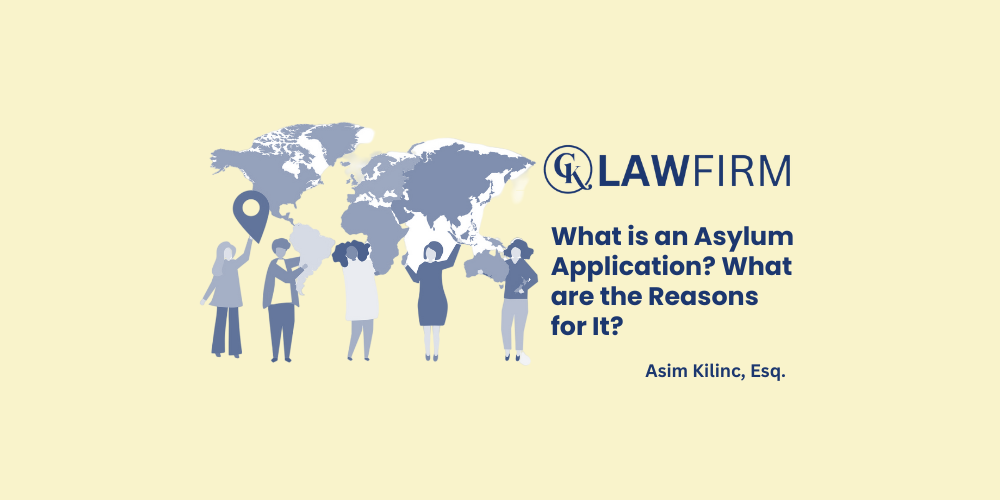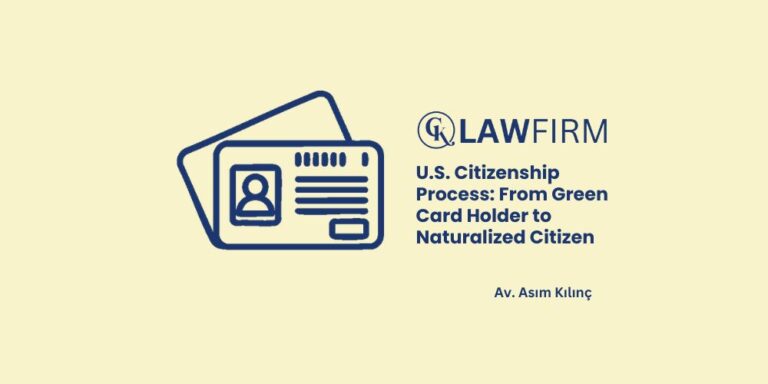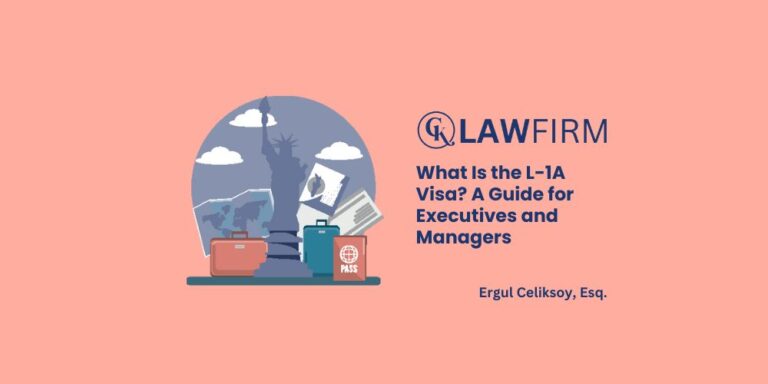Schedule an Appointment with Our Attorneys Now

What is an Asylum Application? What are the Reasons for It?
What is an Asylum Application? Learn about the asylum process, reasons for seeking it, and legal assistance for a successful application.
By Asim Kilinc, Immigration Attorney at CK Law Firm
Today, there are multiple ways to study, live, work, or settle in the United States. Among these, the concept of asylum and the reasons for applying for asylum frequently come up. In this article, we will discuss:
- What is an Asylum Application?
- Reasons for Asylum
If you have any other questions related to this topic, please don’t hesitate to reach out via the comments section below this article, send me a direct message on LinkedIn, or contact me through the CK Law Firm Immigration Law Firm’s website, where I am a co-founder.
What is an Asylum Application?
An asylum application is the process where a person seeks protection in another country due to persecution or the risk of persecution in their own country. To be accepted, specific criteria must be met. An asylum application is a protection method used by individuals whose lives are in danger, whose basic human rights have been violated, or who have faced persecution. Asylum is a process regulated by international law that requires states to provide protection under certain conditions to those seeking asylum. The primary goal of this application is to ensure the applicant’s safety and the protection of their human rights.
To be accepted, the persecution the applicant has faced must be evaluated according to specific criteria. Persecution is defined as serious violations and mistreatment that threaten a person’s life, freedom, or security. These violations can be carried out by state or non-state actors. When evaluating an asylum application, the type, continuity, intensity of persecution, and the reasons why the applicant is fleeing from this persecution are considered.
Reasons for Asylum
Here are some fundamental reasons a person might apply for asylum:
- Persecution Due to Race
- Persecution Due to Religion
- Persecution Due to Nationality
- Persecution Due to Membership in a Particular Social Group
- Persecution Due to Political Opinion
- Gender-Based Persecution
- Persecution Due to Environmental Disasters and Climate Change
- Persecution Due to Race
A person may apply for asylum due to discrimination, violence, and other forms of mistreatment they face because of their race. Racial persecution can manifest in various ways, such as physical attacks, discriminatory practices, and racist rhetoric. For example, individuals belonging to a specific ethnic group may be systematically targeted by members of the majority group, fired from their jobs, denied education rights, or restricted access to social services. Such discrimination and violence can endanger the person’s life and force them to flee the country.
- Persecution Due to Religion
Restrictions on religious freedom, discrimination against individuals belonging to specific religious groups or beliefs, and persecution based on religion are also grounds for asylum. For example, members of a minority religious group in a country may face the destruction of their places of worship, bans on religious rituals, forced conversion attempts, and even imprisonment or execution due to their religious beliefs. These threats can prevent a person from living according to their religious beliefs and force them to seek refuge in a safer place.
- Persecution Due to Nationality
Discrimination and persecution due to nationality or ethnic origin can lead to an asylum application. For example, individuals belonging to ethnic minorities in a country may be systematically oppressed by majority groups, forcibly displaced, or subjected to ethnic cleansing. Nationality-based persecution can severely threaten individuals’ physical and psychological health.
- Persecution Due to Membership in a Particular Social Group
Persecution faced by a person due to their membership in a particular social group can be grounds for an asylum application. These social groups may include individuals who face discrimination due to their sexual orientation, gender identity, professions, or specific social roles. For example, LGBTQ+ individuals may face severe discrimination and violence in many countries, lack social acceptance, and even face legal punishment. Similarly, individuals working in certain professions (journalists, human rights defenders, etc.) may face pressure, threats, and attacks.
- Persecution Due to Political Opinion
Persecution faced due to political opinions or activities is a significant reason for an asylum application. A person’s criticism of the government, opposition activities, or membership in a particular political party can make them a target of the government or other political groups. For example, an opposition journalist in a country may be imprisoned, tortured, or killed due to their writings criticizing government policies. Political activists may be arrested or threatened with their families for participating in protest demonstrations.
- Gender-Based Persecution
Gender-based persecution includes violence and oppression faced by women or individuals discriminated against due to their gender identity. For example, women in a country may be forcibly married, subjected to domestic violence, or denied education and work rights. Similarly, individuals discriminated against due to their gender identity may face violence, sexual assault, and social exclusion.
- Persecution Due to Environmental Disasters and Climate Change
In recent years, the number of people displaced due to climate change and environmental disasters has increased. Natural disasters such as droughts, floods, and hurricanes can make living conditions unsustainable and force people to migrate. Additionally, the depletion of resources due to such disasters can trigger social conflicts, forcing people to flee these conflicts.
Conclusion
When applying for asylum, it is essential to document the persecution faced and the reasons for it in detail. Since each individual’s situation is unique, the asylum application requires a detailed assessment of personal experiences. Therefore, it is crucial for those applying for asylum to clearly and accurately describe their experiences and provide as much evidence as possible. Obtaining professional legal advice during the asylum application process can increase the chances of success and help protect the applicant’s rights. For more information and support, please do not hesitate to contact CK Law Firm Immigration Law Firm through our website, at info@cklawfirm.org, or directly via LinkedIn.
Who is Attorney Asim Kilinc?
Attorney Asim Kilinc is a co-founder of CK Law Firm and is known for his expertise in immigration law and U.S. asylum applications. Having completed his Master of Laws at Southern Methodist University Dedman School of Law, Kilinc is a member of the Missouri Bar and has a particular focus on U.S. immigration law.
With extensive knowledge and experience in immigration law, Attorney Kilinc significantly contributes to CK Law Firm’s success in this field. He has played an active role in preparing over 1,000 immigration cases, demonstrating his expertise. By providing comprehensive and professional legal support to his clients, he facilitates their adaptation to new lives in the United States.
Attorney Kilinc also possesses a broad knowledge base in U.S. asylum applications. He meticulously guides his clients throughout the process, ensuring they receive the best legal advice. He provides the highest quality service in citizenship, Green Card, work permits, and other immigration processes, supporting his clients from the beginning to U.S. citizenship.
By providing reliable and effective legal consultancy services, Attorney Asim Kilinc strengthens CK Law Firm’s leadership in immigration law and U.S. asylum applications, standing by his clients in their journey to build a new life in the United States.





